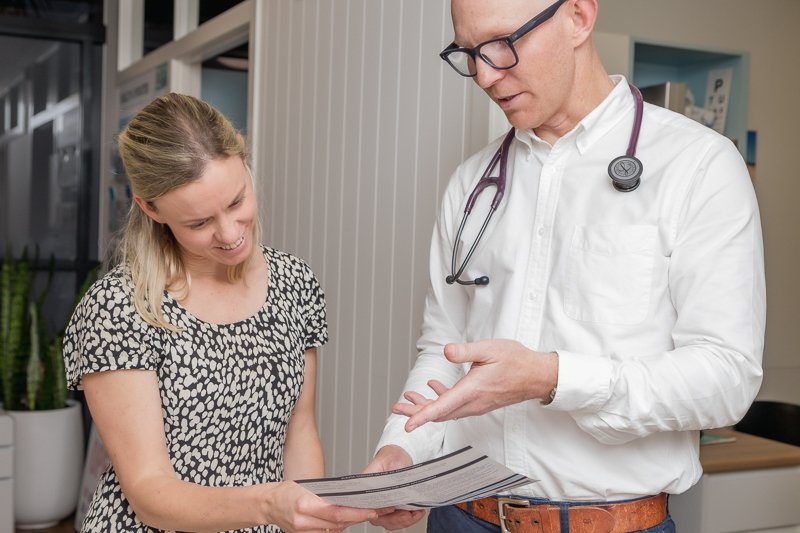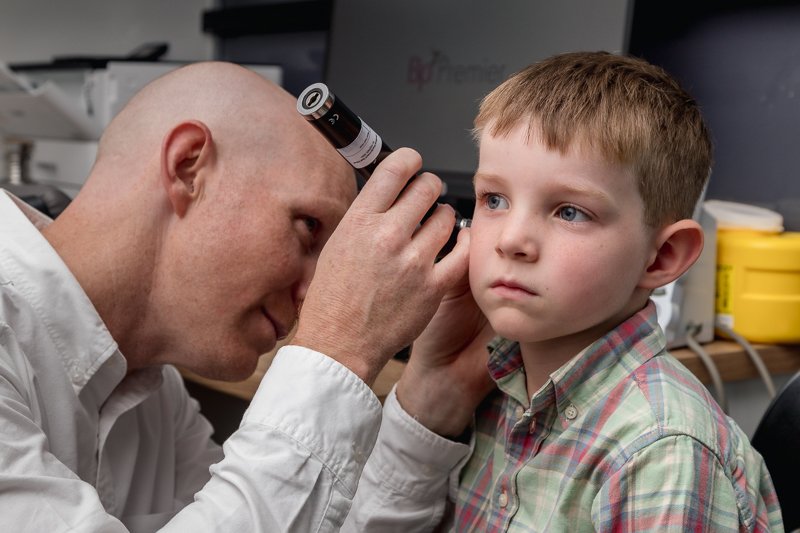Women’s Health Services in Peregian Beach
Whatever your age, experiences or occupation, your physical and mental health and wellbeing should be one of the most important things to you.
Women’s health differs from that of men in many unique ways. Women have a unique and wide range of concerns, specialties, and focus areas such as Birth control, sexual health, the menstrual cycle, and breast care amongst others.
Our doctors at Peregian Family Medical Centre are available for consultations on important women’s health issues and concerns such as:
Family Planning
Deciding if and when to become pregnant can affect your health and wellbeing. Family planning can help you choose your preferred spacing of pregnancies and childbirth. It reduces the risk of unwanted pregnancies, unnecessary abortions, and maternal mortality. Family planning enables you to make informed choices about your sexual and reproductive health, as well as the future of you and your family.
Family planning is a crucial part of your healthcare as a woman. If you’re not yet ready for your next pregnancy, family planning can be discussed at Peregian Family Medical Centre with many contraception options available.
Breast Care
According to statistics, 14% of Australians - women mostly - will be diagnosed with breast cancer in 2019 alone.*
Since finding and treating breast cancer early can save your life, breast care should be given top priority.
As you age, changes in breast tissue often occur. If you are above 50, you should be having annual breast imaging in order to detect breast cancer in its early stages. In addition to a regular mammogram and/or ultrasound, you should also conduct a monthly self-examination to detect changes in your breast tissue. Getting to know your own breast tissue and then detecting change is more important than getting worried about technique. Your GP can instruct you on this.
In the event that a lump is detected, our experienced practitioners will guide you through the next steps and will provide comprehensive and compassionate care.
Cervical Screening Test
previously known as the ‘Pap smear’
Cervical cancer is a very preventable form of cancer, and your best protection is regular screening tests.
The Pap Test in Australia has been replaced by the Cervical Screening Test since December of 2017. This type of screening is more effective than the Pap Test because it is able to detect the human papillomavirus that can cause cervical cell changes that may lead to cervical cancer. The Cervical Screening Test is expected to protect up to 30% more women.** If your result is normal, you will only need to be tested every five years instead of two.If you are experiencing symptoms such as unusual vaginal bleeding or discharge or having pain during intercourse, please book an appointment to see a GP as soon as possible. Better still, if you are aged 25 and above, have a Cervical Screening Test even if you aren’t experiencing any symptoms.
Sexual Health
Sex is an important part of your overall emotional and physical well-being for most, but not all, people.
But having a satisfying sex life is not always the norm. Many factors can affect your sexual health - stress, illness, age, medications and hormonal changes, dryness, and sometimes Sexually Transmitted Infections (STI’s), also known as Sexually Transmitted Diseases (STD’s).
Anyone who is sexually active runs the risk of getting STI. The risk is higher for those who have sex with multiple partners or have sex with someone who has many sexual partners.
Symptoms of an STI include:
- sores or blisters on or around the vagina, anus, perineum or in the mouth
- itching, swelling, pain on or around the above areas
- burning sensation or pain during urination
- unusual discharges or bleeding from the vagina
- pain in the pelvic area or abdomen that is sometimes accompanied by fever or chills
If you are experiencing any of these symptoms, book an appointment with your GP. It’s important to know however that not all STI’s have symptoms, so if you have concerns that you would like to speak to a doctor about - you can count on us for utmost confidentiality. Screening for STI’s is also strongly encouraged, especially if you have new or multiple partners.
Menstrual Cycle
Most women deal with mood swings, pain, bloating and cramps when they have their monthly period.
Every month, the lining inside your uterus undergoes the hormonal process of thickening, breaking down and bleeding with each menstrual cycle. This is to prepare your body for a possible pregnancy.
Menstrual flow can last for two to seven days and may occur every 21 to 35 days. Regular menstrual periods are usually a sign that your reproductive organs are working normally. Irregular or heavy periods and extreme pain, mostly in the abdomen, lower back, and pelvic areas can be symptoms of endometriosis.
Endometriosis
Endometriosis occurs when tissue that normally lines the inside of your uterus (the endometrium) grows outside of it. This displaced endometrial tissue continues to thicken, break down and bleed during each menstrual cycle but is trapped because it has no way to exit your body. This can cause irritations in the surrounding tissue.
Other symptoms of endometriosis include:
- Painful intercourse
- Excessive bleeding
- Infertility
- Pain during bowel movements and urination
- Bloating, Nausea, Fatigue, Diarrhea of Constipation especially during menstrual periods
Fortunately, this condition is treatable. An early diagnosis can help in better management of the symptoms. If you have any concerns around any aspect of your period, please discuss with your GP.






